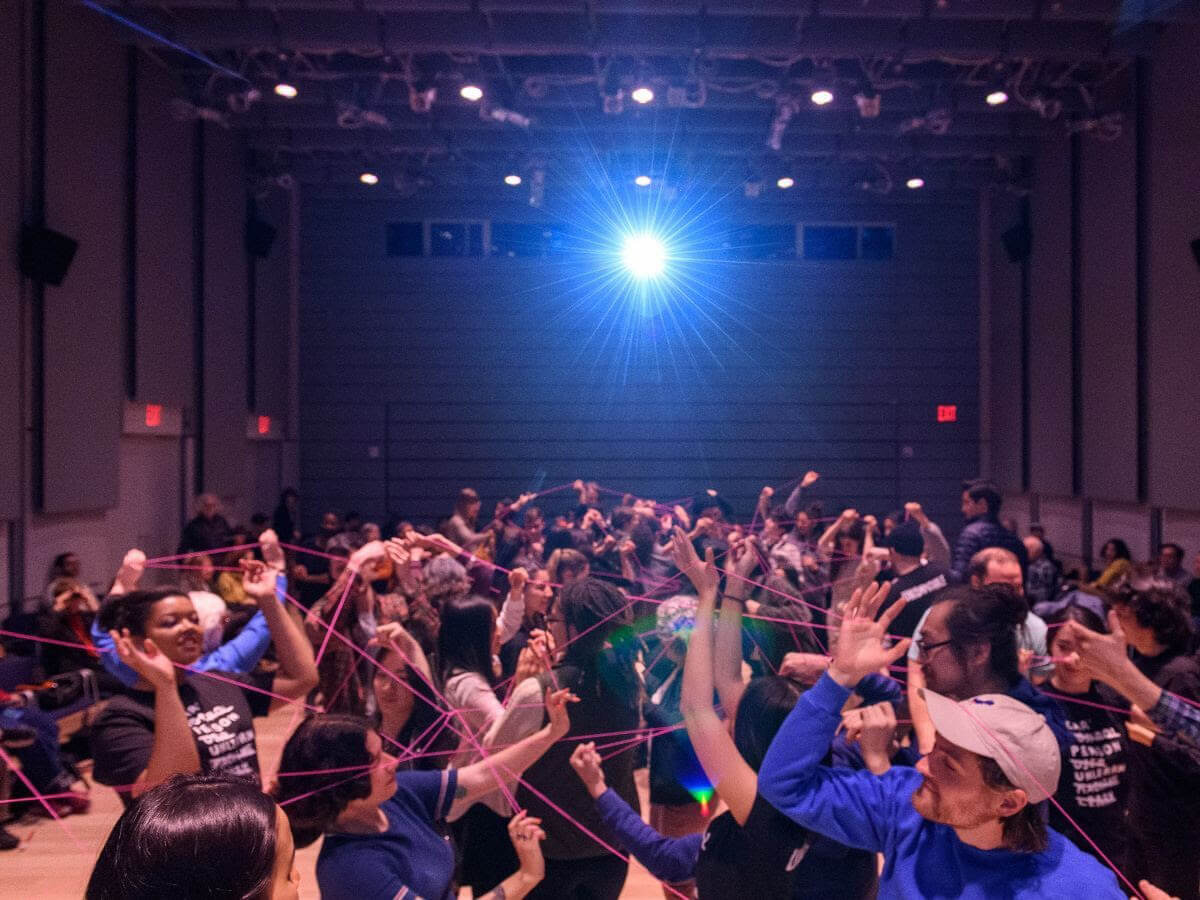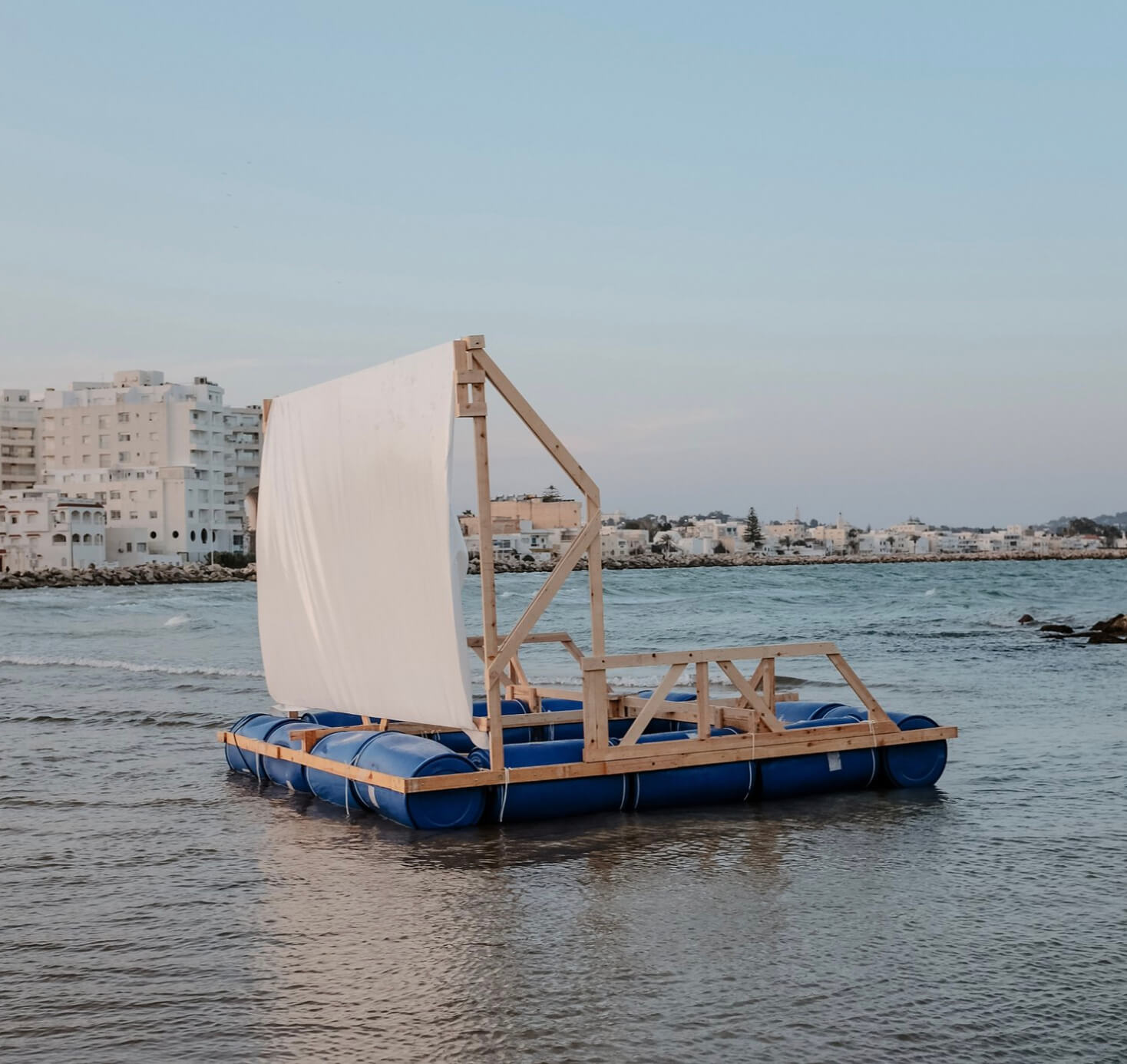Repair, Regenerate and Reuse: A new ethos for Time Space Existence 2025
by Aarthi MohanApr 03, 2025
•make your fridays matter with a well-read weekend
by Diana CampbellPublished on : Sep 28, 2024
About 20 years ago, I listened to a keynote lecture in New York that changed the way I saw the world, long before I ever thought I would live or work outside of the United States and before the idea of becoming a curator even crossed my mind. It was a lecture by Professor Muhammad Yunus and he posed the question: “What is the difference between a person begging for money and a Girl Scout?” The answer was that both were asking for money for a charitable cause, but one had nothing to sell, while the other was selling cookies given on credit. This kind of thinking gave birth to microfinance. While there are issues with microfinance when exorbitant interest rates are applied, I was inspired by how someone used a creative mind to create systemic change that lifted many people out of poverty. I had never met anyone who thought like this before.
Fourteen years ago, personal life choices shifted my life from New York to India and soon after, I began working in Bangladesh, where I encountered an art scene in which artists were creating systems to take their art out of conventional exhibition spaces and into society. I was and continue to be moved by the tangible societal change that artists make in Bangladesh and the Dhaka Art Summit is a celebration of the work these incredible artists do every day. Their work often intersects themes including climate change, social justice, political resistance and community engagement, creating safe spaces for minorities, raising critical awareness and fostering dialogue among various communities. Nearly two decades after I first encountered Professor Yunus and after more than a decade working in Bangladesh, I watched my Dhaka Art Summit team participate in the July Revolution that has brought Professor Yunus to serve as the interim leader of Bangladesh today. I saw the skills that our art mediators use to manage overflowing crowds in our exhibition being used on the streets of Bangladesh to bring about peace and dialogue during times of violence and division. This further reinforces my belief that art must move across the spaces between artists, institutions and society. Artistic thinking needs to reach parts of society that might not even be aware of the existence of art institutions.
Ten years ago, an international network called AFIELD was born in Paris, recognising the importance of supporting artists to create societal change as a part of their practice. The founders, Sandra Terdjman and Gregory Castera understood that while there were support structures for funding art or exhibitions, there were few that supported artists developing projects, such as schools, that extended beyond the art world and into the broader world. A collecting-oriented art world lacked the tools to fully grasp practices that went beyond traditional artworks. They created AFIELD as a platform to create more room to discuss, learn from and contribute to artist-led initiatives that try to foster positive change in the world and I was honoured when they made it possible for me to join the network as an advisor. Being part of the AFIELD network has broadened my understanding of art’s role in the world and introduced me to incredible initiatives from the Philippines to Chicago and many places in between. I also have been able to incorporate my experience in Bangladesh into the network: we have two network members from Bangladesh, artist Shawon Akand from Jothashilpa and architect Marina Tabassum from FACE, who, respectively, are challenging the erasure of craft traditions in the face of globalisation and designing climate resilient structures that allow lives with dignity in some of the most climate challenged contexts on the planet.

Artists who are well-known in the institutional art world such as Wolfgang Tillmans, Yto Barrada, Ibrahim Mahama and many others also run vibrant institutions that reflect their values and have a broader impact on society. One of the newest members of the AFIELD network, artist Fernanda Laguna from Argentina, moved me to tears when I first saw her work at LACMA years ago. What I didn’t know at the time was that she had co-founded an initiative called Belleza y Felicidad Fiorito, which, among many other things, introduces eating for pleasure through a vegan gourmet cooking program in a community where food is often consumed just to satiate hunger. Belleza y Felicidad Fiorito offers art and creative workshops, educational programs and cultural activities for children, teenagers and adults in the local community. The initiative emphasises empowerment through art, giving participants a platform for expression and fostering creativity in an area facing significant socio-economic challenges. Through this initiative, Laguna works to break down the barriers between art and everyday life while offering an inclusive space for those who may not typically have access to cultural resources.
I was thrilled to join AFIELD’s facilitation group (alongside Chantal Wong, Sandra Terdjman, Gregory Castera and Taeyoon Choi) because I found a community that speaks the same language I do when it comes to the expanded role that artists play in the world and feels called to do the work to create better support structures. I see the organisation’s potential to create more space for this critical work, which currently has limited space in art institutions. AFIELD exists to advocate for, strengthen and provide resources to creative practitioners engaged in socially impactful projects at the intersection of art, culture and social change, addressing global issues such as social justice, environmental sustainability and community empowerment. We award three annual fellowships to artists who are community-oriented, innovative in their practice and committed to fostering positive, long-term societal change. The program supports individuals as well as collectives who use creative approaches to tackle challenges faced by marginalised or underserved communities. In addition to financial support, we organise study programs that equip us with tools to serve our communities better. Recent study programs have focused on ableism, nonviolent communication for men and transitional justice. We also take trips to visit our fellows in their contexts and are currently planning a trip to Pakistan to spend time with AFIELD Fellow Yasmeen Lari.

“Artists need to create on the same scale that society has the capacity to destroy,” says AFIELD network member Lauren Bon, a Los Angeles-based visual artist working on long-term ecology related projects. As we mark 10 years of AFIELD, we understand the need to expand the conversation about the role of creative practitioners in societal change and move it from digital spaces to physical gatherings. Following our first in-person study program, Let’s Share!, at Documenta 15, we launched the AFIELD Forum, a three-year program bringing together an international cohort of artists, activists, thinkers, cultural workers and social entrepreneurs. The forum explores questions like: How, why and should artists bring systemic change for a better society? What do artists (in the most expanded sense of the word) contribute when they take on the roles of NGOs, educators, activists and agents of social transformation? The ongoing, multi-scalar crises call for more concrete action from the arts and cultural sectors towards social and environmental justice. We partnered with KANAL—Centre Pompidou, CIVA, and Dewitte & Filles in Brussels—a city filled with creative solutions and circular economy initiatives in the heart of Europe where people bring an entrepreneurial spirit to creatively solving problems—to bring this forum to life and we are actively planning and building partnerships for the 2025 and 2026 editions.
The AFIELD Forum also serves as a platform to announce our new cohort of fellows: Martha Atienza from the Philippines, Sahad Saar from Senegal and Anna Dantes from Brazil, joining peers Fernanda Laguna from Argentina, El Warcha from Tunisia, and Sergio Roberto Gratteri. Working across design, music, visual art and curation, these talented individuals join our network and participate in the AFIELD Forum program, sharing their experiences, challenges and goals with our community. Fellows use the funds from the fellowship to expand or deepen their existing projects, allowing them to scale or refine their work and bring it to new audiences and to benefit from international networking and mentorship that the network provides. AFIELD is supported by enlightened patrons, foundations and institutional partners that seek to empower artistic thinking towards real systemic change. This year, we are opening the AFIELD Forum with a keynote by Anand Giridharadas, who critiques modern philanthropy as a system where the wealthy use charity to maintain their power and influence, often addressing the symptoms of inequality rather than its root causes. In his view, this approach perpetuates the status quo, allowing elites to appear benevolent while avoiding real structural change. As we embark on the next decade of AFIELD, we are committed to amplifying the voices of artists and creative practitioners who are redefining the boundaries of social change. Together, we can continue to challenge the status quo, fostering a future where art is an active force for equity, justice and transformation in society and not just value signalling.
by Maanav Jalan Oct 14, 2025
Nigerian modernism, a ‘suitcase project’ of Asian diasporic art and a Colomboscope exhibition give international context to the city’s biggest art week.
by Shaunak Mahbubani Oct 13, 2025
Collective practices and live acts shine in across, with, nearby convened by Ravi Agarwal, Adania Shibli and Bergen School of Architecture.
by Srishti Ojha Oct 10, 2025
Directed by Shashanka ‘Bob’ Chaturvedi with creative direction by Swati Bhattacharya, the short film models intergenerational conversations on sexuality, contraception and consent.
by Asian Paints Oct 08, 2025
Forty Kolkata taxis became travelling archives as Asian Paints celebrates four decades of Sharad Shamman through colour, craft and cultural memory.
 surprise me!
surprise me!
make your fridays matter
SUBSCRIBEEnter your details to sign in
Don’t have an account?
Sign upOr you can sign in with
a single account for all
STIR platforms
All your bookmarks will be available across all your devices.
Stay STIRred
Already have an account?
Sign inOr you can sign up with
Tap on things that interests you.
Select the Conversation Category you would like to watch
Please enter your details and click submit.
Enter the 6-digit code sent at
Verification link sent to check your inbox or spam folder to complete sign up process



by Diana Campbell | Published on : Sep 28, 2024
What do you think?